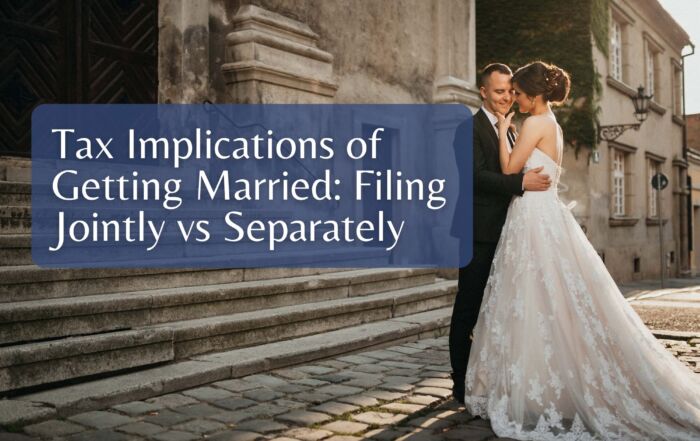
Tips for Moving to Lower Tax States
Jordan Sute, CPA from Sute CPAs joins Casey Smith and Brad Lyons, CFP® to discuss tips for moving to lower tax states. What should you do besides change your drivers license?
Listen on Apple Podcasts or watch on YouTube:
SUMMARY:
Being Taxed by Two States
Pretend you are moving from New York City to Los Angles. First of all, you must establish a domicile in one of the states. If not, both states could fully tax you. This is because you could meet both states requirements for taxation. They could both claim that you were there the entire time or enough of the time.
How to Prove You Have Moved
First, get a driver’s license for the state you have moved to. Then register your car, register to vote, actually vote, and get a new gym membership. After that, sever your relationship with your old state. Do this by canceling your memberships, ending lease agreements, or selling your home. Make sure you establish that you live in one place, not the other and do it by a certain date. Don’t linger.
Establishing Domicile
It’s important to keep records of your new domicile. If you are moving for a new job, keep track of your offer letter so that it shows your start date. Keep personal logs and then have a few receipts to back it up.
When is the best time to move?
Most people move in the summer. If you have been filing Georgia tax returns for your whole life and then you file for Alabama, a state may look into you. Even if you moved in the summer, they will want to tax the months of income you gained in GA.
What if I have a second home?
If you have a second home in Florida, but spend most of your time in Georgia, it is important to learn what each state’s rules are to consider you a resident. Then, you must establish a domicile in one of the states. You have to take the steps to prove that one of them is your home.
Ultra High Net Worth
Pretend you have a successful business in Georgia, you live in Florida, and you have another home overseas. In a situation like this, be very mindful of where you are earning your income and where you are spending your time. In this case, keeping receipts is helpful because a state could come in and ask for a portion of your income tax.
TIMESTAMPS:
1:13 Being Taxed by Two States
3:17 How to Prove You Have Moved
4:31 Establishing Domicile
6:55 When is the best time to move?
8:40 What if I have a second home?
10:13 Ultra High Net Worth
LINKS:
Learn more about Casey Smith and connect with him on Twitter.
Learn more about Brad Lyons.
Learn more about Matthews Barnett.
CONNECT:
Twitter, Instagram, Facebook, LinkedIn, and YouTube.
Learn more about the Wiser Wealth Management Roundtable podcast and access previous episodes.
Share This Story, Choose Your Platform!
Wiser Wealth Management, Inc (“Wiser Wealth”) is a registered investment adviser with the U.S. Securities and Exchange Commission (SEC). As a registered investment adviser, Wiser Wealth and its employees are subject to various rules, filings, and requirements. You can visit the SEC’s website here to obtain further information on our firm or investment adviser’s registration.
Wiser Wealth’s website provides general information regarding our business along with access to additional investment related information, various financial calculators, and external / third party links. Material presented on this website is believed to be from reliable sources and is meant for informational purposes only. Wiser Wealth does not endorse or accept responsibility for the content of any third-party website and is not affiliated with any third-party website or social media page. Wiser Wealth does not expressly or implicitly adopt or endorse any of the expressions, opinions or content posted by third party websites or on social media pages. While Wiser Wealth uses reasonable efforts to obtain information from sources it believes to be reliable, we make no representation that the information or opinions contained in our publications are accurate, reliable, or complete.
To the extent that you utilize any financial calculators or links in our website, you acknowledge and understand that the information provided to you should not be construed as personal investment advice from Wiser Wealth or any of its investment professionals. Advice provided by Wiser Wealth is given only within the context of our contractual agreement with the client. Wiser Wealth does not offer legal, accounting or tax advice. Consult your own attorney, accountant, and other professionals for these services.





